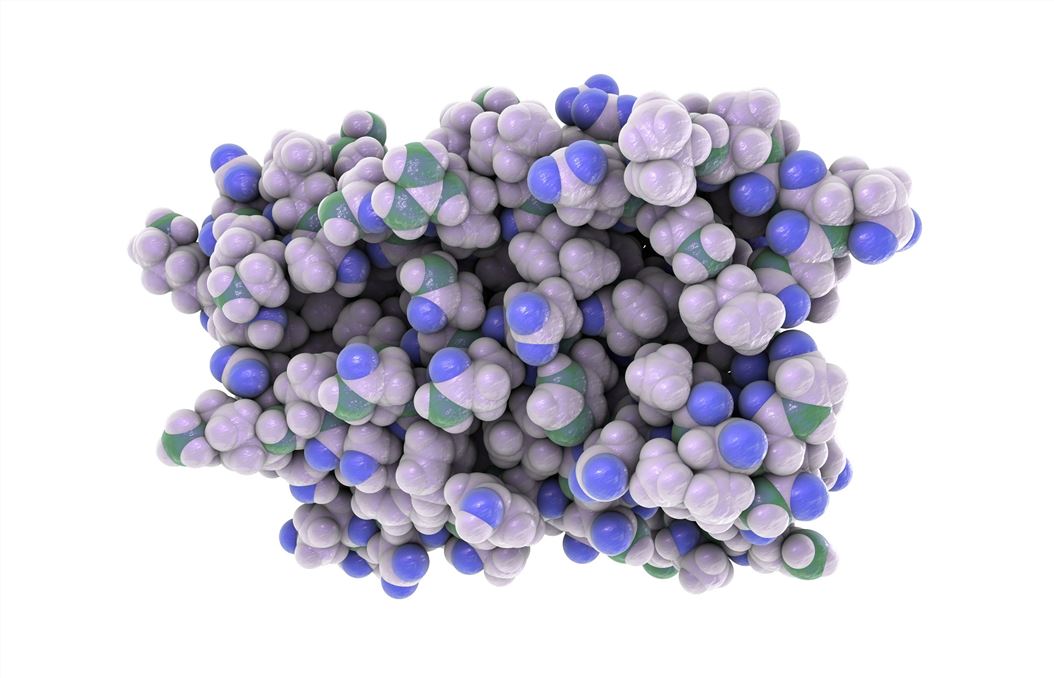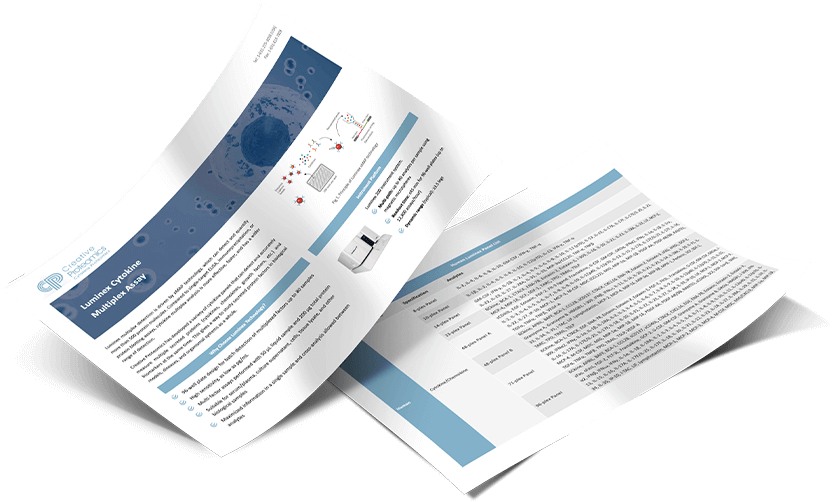Introduction
Interferon (IFN) is a kind of protein with a wide range of biological activities. It has various physiological functions such as regulating the body's immune function, anti-virus and anti-tumor. IFN is an important part of the body's defense system.
Creative Proteomics can provide interferons detection platform for scientific research. According to different purposes, our professional analysts will customize exclusive solutions for you. We aim to provide customers with high-quality and convenient services to help you accelerate the progress of your project.

Types of interferons we can detect
- Type I IFN detection service (IFN-α and IFN-β detection)
- Type Ⅱ IFN testing service (IFN-γ detection)
Technology platform
We mainly provide the Luminex cytokine detection platform. Luminex uses fluorescently encoded microspheres with specific antibodies to different target molecules. The different microspheres can be combined freely to a certain extent so that up to 100 analytes can be tested multiple times simultaneously in a single experiment.
The Luminex cytokine assay platform has the following advantages:
- Multiple detection: simultaneous detection of 100 biological targets
- Short experiment time: 1-3 weeks
- High sensitivity: the lower limit of accurate quantification is as low as 0.1 pg/mL
- Save samples: only need a sample volume as low as 25 μL
- Time saving: the experiment process only takes 4 hours
For your different needs, we can also provide the following detection methods:
- Real-time quantitative polymerase chain reaction assay: study gene expression and measure the transcription abundance of cytokine mRNA.
- Enzyme-linked immunosorbent assay (ELISA): The specific binding of antibody molecules to antigen molecules. Separate free contaminants from the target protein bound to the solid-phase carrier, and use special markers for qualitative or quantitative.
- Flow cytometry: Achieve simultaneous detection of multiple indicators from one specimen.
Advantages of Interferons (IFN) detection platform
- Large linear range
- One-stop analysis services
- Rapid time to results
- Customized service
- Detailed results analysis report
Applications of Interferons (IFN) detection
- In biomedicine: At present, a large number of highly efficient recombinant IFN genetic engineering products have been produced using genetic engineering methods and applied to the treatment of viral infections, tumors, and immune system diseases. The effect can be measured by detecting the level of IFN.
- In animal husbandry and veterinary medicine: IFN is a non-specific broad-spectrum antiviral biological agent that can be used to treat many viral diseases and some zoonotic diseases, such as toxoplasma infection. The effect of use can be determined by detecting the level of IFN.
- In biological research: Analyze IFN levels to explore the mechanisms related to IFN and various diseases. It can also be used to detect the IFN level necessary in the biopharmaceutical process.
Creative Proteomics has developed a multi-interferon detection platform. Our services are not limited to providing interferon testing, we can also provide other cytokine testing. If you want to test other types of cytokines, you can contact us. Our professional analysts will communicate with you. We are looking forward to cooperating with you.
More Information
- Classification of IFN
Preliminary classification is carried out according to the animal source of IFN, and then divided into different types according to the difference in antigenic characteristics and molecular structure of IFN. Within a specific type, differences in amino acid sequence or composition can be divided into subtypes.
IFN is divided into type I and type II. Type I IFN is divided into α, β, τ and ω types. The structure of each type is similar, all of which are single-copy or multi-copy genes without introns. Type I IFN induced by viruses, microorganisms and their products are mainly involved in anti-virus and anti-tumor. There is only one type II IFN, namely IFN-γ. IFN-γ is produced by lymphocytes stimulated by mitogens or specific antigens, and is mainly involved in inducing the expression of MHC antigens and immunomodulating effects. But its antiviral effect is weaker than type I IFN.
- Classification of IFN

